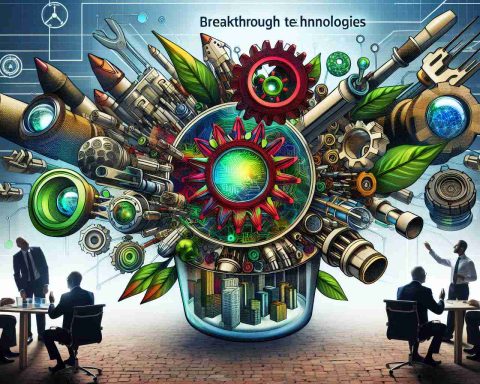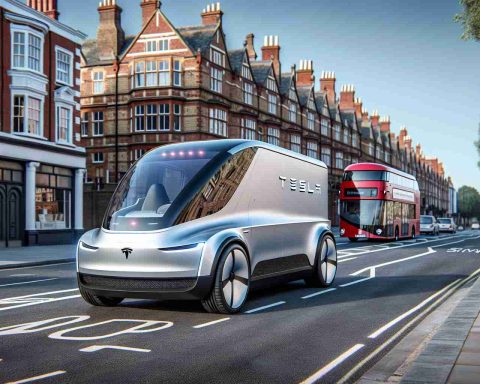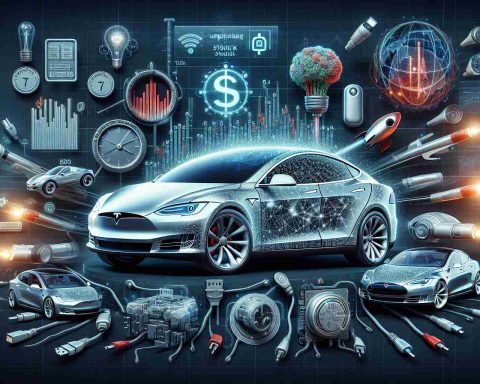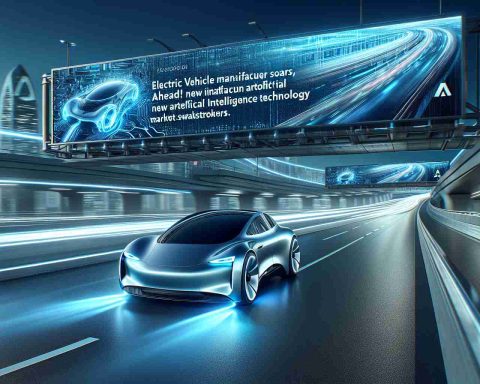Colorado’s Ambitious Leap Towards a Greener Future
Colorado is rewriting the rulebook on sustainable travel by enthusiastically embracing electric vehicles (EVs) and revolutionizing long-distance drives. As part of a cutting-edge initiative, the state has installed over 1,100 fast chargers, mobilizing eco-friendly road trips for adventurous spirits. Here’s a deeper dive into Colorado’s transformative journey towards a green travel future.
Strategic Charging Infrastructure
1. Statewide Fast Chargers: Colorado’s EV Fast Charging Corridors program has strategically positioned fast chargers across the state, ensuring that nearly 80% of interstate highways are no more than 30 minutes away from a charging station. This leap significantly reduces travel anxiety among EV owners, encouraging more people to opt for sustainable travel options.
2. Collaborative Funding Model: With support totaling $12 million from state funds combined with private and local contributions, this collaborative effort highlights a shared commitment to greener transportation solutions.
3. Convenience & Access: By placing charging stations in easily accessible locations, such as the new site adjacent to a Target store in Wheat Ridge, the initiative seamlessly integrates electric charging with daily life.
Taking the Lead in EV Sales
Colorado has emerged as a frontrunner in the EV market, with electric vehicles accounting for over 25% of new car sales—surpassing California. This strong growth trajectory underscores a collective shift in consumer mindset towards environmental conservation and a greener lifestyle.
The Road Ahead for EV Technology
The future looks promising as Colorado’s ongoing advancements in charging infrastructure and EV technology predict a broader national trend. Experts estimate that electric vehicles could constitute nearly half of all new car sales by 2030.
Challenges and Considerations
Despite numerous advancements, a few challenges remain, such as the availability of sufficient chargers in rural areas and mitigating potential cybersecurity risks associated with charging networks.
Conclusion
Colorado’s successful implementation of a comprehensive EV charging network marks a turning point in sustainable travel, setting high standards for other states to follow. As EV technology continues to evolve, the prospects for sustainable long-distance travel are indeed promising.
Accelerating Towards Sustainability: Colorado’s Influence on the Global Green Movement
Colorado’s groundbreaking approach to sustainable travel through the adoption of electric vehicles (EVs) and expansion of charging infrastructure marks a pivotal moment in the pursuit of a greener future. As the state enhances its dedication to eco-friendly transportation, it offers a blueprint for integrating sustainability into daily life, influencing environmental practices, economic stability, and the trajectory of humanity.
Environmental Impact and Benefits
The widespread adoption of electric vehicles significantly curbs the environmental pollution associated with traditional internal combustion engines. By reducing reliance on fossil fuels, Colorado’s initiatives are directly diminishing greenhouse gas emissions, improving air quality, and fostering healthier ecosystems. The strategic installation of over 1,100 fast chargers enables seamless long-distance travel without compromising environmental integrity. Thus, Colorado’s actions contribute to mitigating climate change and preserving natural habitats, highlighting an exemplary environmental stewardship model.
Implications for Humanity
As Colorado pioneers this shift towards sustainable transportation, the human experience of travel is also redefined. EV technology facilitates a more conscious consumer mindset, focusing on reducing carbon footprints and embracing sustainable lifestyles. Accessibility to charging infrastructure encourages a societal shift towards environmental responsibility, promoting a culture of eco-awareness, where future generations may inherently value conservation through daily habits and choices.
Economic Influence and Growth
The economic ripple effects of Colorado’s EV momentum are far-reaching. The increase in electric vehicle sales not only indicates a robust market transformation but also inspires innovation within the automobile industry. This evolution fosters job creation in green tech sectors, stimulating economic growth and positioning the state as a leader in sustainable industry practices. Additionally, the collaborative funding model underscores the economic viability of public-private partnerships, setting a precedent for future investment models that balance financial returns with societal benefits.
Forward-Thinking Global Impact
Colorado’s success story resonates beyond state lines, offering a replicable framework ready for global application. By prioritizing infrastructure, consumer support, and innovation, Colorado exemplifies a path towards achieving international sustainability goals and carbon neutrality commitments. Moreover, the expansion of EV technology foreshadows a future where electric vehicles could dominate the automotive industry, potentially transforming global transportation networks.
A Vision for the Future of Humanity
The innovative strides made by Colorado serve as a catalyst for global change, urging humanity towards a more sustainable and resilient future. This commitment to reducing environmental impact aligns with global efforts against climate change, ushering in an era wherein transportation harmoniously coexists with ecological balance. Ultimately, this movement holds the promise of reshaping how societies perceive mobility, driving a collective journey towards a more sustainable world that future generations may inherit with pride.
The Hidden Landscape of Colorado’s EV Revolution: What Lies Beneath?
Electrifying Insights: Colorado’s Clean Energy Breakthroughs
With an eye towards a sustainable future, Colorado has made significant strides in embracing electric vehicles (EVs), spearheading a movement that promises to redefine eco-friendly travel across the nation. As the state lays out its green blueprint, new and evolving insights reveal the depth of Colorado’s commitment to a greener tomorrow.
Innovations in EV Infrastructure
# Advanced Route Planning Tools
An exciting development in Colorado’s EV landscape is the introduction of sophisticated route planning tools for drivers. These digital tools aid in optimizing travel routes by integrating charging station data, estimated charging times, and real-time road conditions, ensuring smoother journeys for EV travelers.
# Solar-Powered Chargers
In an innovative push towards renewable energy, Colorado has begun integrating solar-powered charging stations within its network. These stations aim to reduce reliance on the conventional grid, enhancing the sustainability quotient of EV travel even further.
Security and Sustainability: The Double-Edged Sword
# Cybersecurity Considerations
As Colorado expands its charge network, the focus on cybersecurity strengthens. With EV chargers increasingly becoming data points in smart cities, the need for robust digital protection mechanisms is paramount to preventing potential threats and preserving user data integrity.
# Eco-Sustainability Measures
Beyond just the adoption of EVs, Colorado’s initiatives extend to ensuring that the entire EV ecosystem, including the manufacturing and recycling processes, adheres to stringent sustainability practices, minimizing overall environmental impact.
Market Dynamics: A Glimpse into EV Economics
# Pricing and Incentives
The state’s aggressive push in the EV market is fueled by competitive pricing strategies and substantial incentives for buyers. The availability of state subsidies and rebates further enhances affordability, driving consumer interest in sustainable vehicles.
# Market Analysis and Predictions
With electric vehicles forming a significant share of new car sales, the market analysis suggests a robust growth trend continuing into the next decade. Predictions highlight that EVs could become a dominant force in personal and commercial transport by 2030, aligning with Colorado’s strategic environmental goals.
Sustainable Transitions
# Rural Expansion Challenges
While urban areas experience rapid adoption, expanding EV infrastructure into Colorado’s rural regions remains a challenge due to logistical and economic constraints. Strategic planning continues to address these barriers, aiming for comprehensive statewide coverage.
# Collaborative Industry Efforts
Colorado’s success is also credited to its collaborative model, engaging both public and private sectors. This synergy ensures that sustainable practices are collectively owned and implemented, setting a powerful precedent for other states.
Conclusion
Colorado’s relentless pursuit of a green future through transformative EV technologies and infrastructures not only anchors its position as a leader in sustainable travel but also provides a scalable framework for nationwide adoption. As it navigates the complexities of this transition, the innovations and challenges explored here highlight the intricate journey toward an eco-conscious travel era.
For more information on Colorado’s green initiatives and its impact on sustainable travel, visit Colorado.


















